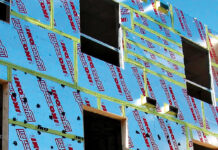By Leor Margulies & Sukhraj Sandhu
Robins Appleby
In early October, the Office of the Auditor General of Ontario (Auditor General) released its long-awaited performance audit of the Home Construction Regulatory Authority (HCRA). The report set out to evaluate whether the HCRA is effectively fulfilling its mandate to license and oversee new-home builders and protect consumers. While the findings identify several legitimate concerns about how the regulator operates, particularly around licensing, oversight and complaint management, the report stops short of addressing the deeper, systemic issues that have frustrated builders since the HCRA’s creation in February 2021.
The Auditor General’s review paints a picture of an organization that is reactive rather than strategic. The HCRA approved nearly all licence applications, often without conducting adequate reviews of applicants’ financial stability or compliance history. It also routinely renewed licences through an automated “fast-track” process even when builders had outstanding complaints or investigations. The report criticized the HCRA for relying heavily on credit scores to assess financial capacity, for failing to conduct risk-based inspections, and for allowing a complaint backlog to balloon to more than 1,500 unresolved cases. These are valid points that speak to internal inefficiencies. However, from the perspective of Ontario builders, they ignore some of the regulator’s broader challenges.
Pressing concerns
One of the most pressing concerns for builders remains the often-significant delays in licensing decisions. For an industry where timing affects everything – from financing conditions to project starts and closings – these delays create real and measurable consequences. Many builders have expressed frustration with the lengthy and unpredictable timelines for licence approvals and renewals, and are often faced with limited updates or explanation from the HCRA about expected timelines or reasons for delay. The Auditor General’s report acknowledges the HCRA’s administrative backlog but does not probe how these delays hinder housing delivery at a time when the province is calling for record levels of new construction nor how they can be eased.
Another critical issue that the audit overlooks is the regulator’s apparent lack of industry knowledge. Builders and developers regularly encounter HCRA personnel who have limited understanding of real estate development, financing and construction processes. The result is a regulatory culture that focuses almost exclusively on consumer protection and fails to appreciate the complexities of project sequencing, compliance obligations and the market realities of homebuilding. A meaningful improvement would be to recruit experienced professionals from the development and construction sectors, and to regularly engage with an industry advisory committee to obtain insight on industry realities before making material policy changes or announcements. This should not derogate from the HCRA seeking appropriate input from consumer groups as well.
‘Advisories’ and compliance interpretations
In recent years, the HCRA has also issued several “advisories” or compliance interpretations that effectively change expectations and rules for behaviour without adequate industry consultation or notice. For a regulator charged with promoting confidence and professionalism, unilateral rule-making can often result in impractical guidelines. A better approach would be for the HCRA to engage in structured consultation before issuing new policies, something akin to consultation processes used by other regulators such as the Financial Services Regulatory Authority of Ontario (FSRA) and the Office of the Superintendent of Financial Institutions (OSFI).
Regarding the more than 1,500 unresolved cases that the Auditor General refers to, no mention is made of how these complaints are dealt with. Very often, a complaint is received by the HCRA and simply sent off to the builder without any vetting process. We have seen complaints that are totally unfounded and should have been rejected by the HCRA upfront as being frivolous or purely contractual, reflecting no moral or ethical wrongdoing on the part of the builder. Builders and their lawyers then have to spend hours putting together an analysis of this complaint where there is no real basis for a complaint to have been made in the first place.
If some of the more frivolous or inappropriate complaints were dealt with upfront by the HCRA and rejected (or at least have further information requested from the consumer to support its complaint) without further involvement of the vendor, this would certainly reduce the backlog and ensure that builders do not waste their time on these types of claims, but rather focus on legitimate complaints. This, however, means that the HCRA complaint officer has to spend more time reviewing the complaint and perhaps even going back to the purchaser for more information.
Imbalance between enforcement and support
Perhaps the most significant gap in both the Auditor General’s report and the HCRA’s overall direction is the imbalance between enforcement and support. Consumer protection is, of course, an essential part of the HCRA’s mandate. But regulation should not be focussed solely on punishment. The current approach leans heavily toward investigation and penalties, with little emphasis on builder education, industry development or proactive compliance assistance. Builders need a regulator that not only identifies wrongdoings but also helps raise professional standards across the sector. That could mean developing clearer licensing criteria, offering voluntary training programs or publishing consistent best-practice guidance.
The HCRA’s role should be to create a fair and transparent environment where reputable builders can thrive while bad actors are held accountable. Achieving that balance requires collaboration, not confrontation. Builders want a regulator that understands their operational realities, such as supply-chain volatility, escalating costs, financing pressures and increasingly complex approval processes, and incorporates those factors into its regulatory expectations. The audit’s focus on internal process improvement is important, but without a broader cultural shift within the HCRA toward partnership and mutual accountability, the same problems are likely to persist.
Industry and consumers alike need an HCRA that protects consumers while also encouraging builders to do what they do best: Build quality homes and deal with their customers fairly.


Leor Margulies is Real Estate Group Co-Head, and Sukhraj Sandhu is Associate, Robins Appleby LLP. robinsappleby.com.











